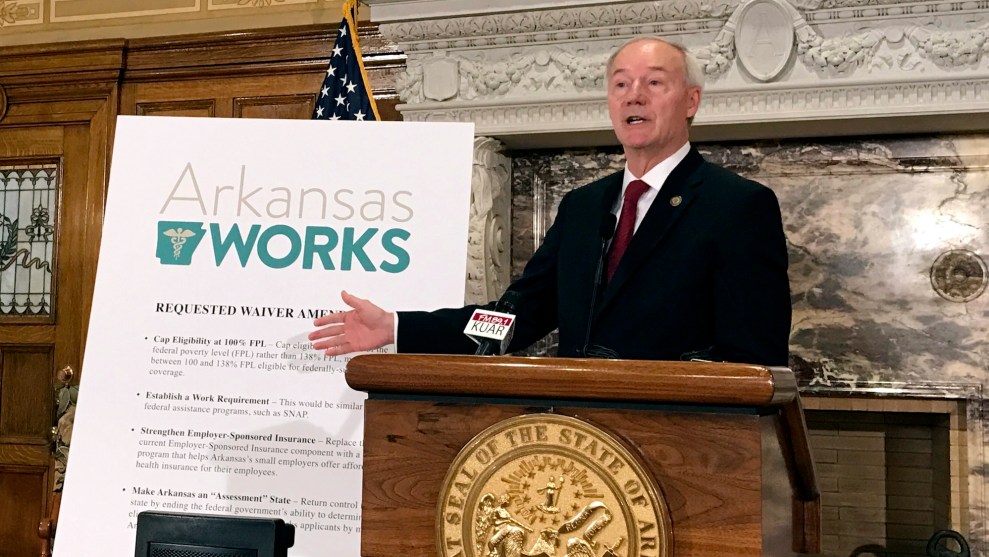
Arkansas purged 18,000 recipients from its Medicaid program via work requirements.Andrew DeMillo/AP
The DC Court of Appeals ruled this morning against pilot projects that impose work requirements on Medicaid. Why? Because the Medicaid statute identifies one, and only one, goal for the Medicaid program: to furnish medical assistance on behalf of families who can’t afford it. That’s it. And yet, a pilot project in Arkansas that added work requirements had exactly the opposite effect:
A critical issue in this case is the Secretary’s failure to account for loss of coverage, which is a matter of importance under the statute. The record shows that the Arkansas Works amendments resulted in significant coverage loss. In Arkansas, more than 18,000 people (about 25% of those subject to the work requirement) lost coverage as a result of the project in just five months.
But the HHS Secretary barely even acknowledged this, instead basing his approval on three points related to overall community health:
These three alternative objectives all point to better health outcomes as the objective of Medicaid, but that alternative objective lacks textual support. Indeed, the statute makes no mention of that objective….While we have held that it is not arbitrary or capricious to prioritize one statutorily identified objective over another, it is an entirely different matter to prioritize non-statutory objectives to the exclusion of the statutory purpose.
So that’s that. The court ruled that the statutory purpose of Medicaid is to provide health care to people who can’t afford it. More coverage is good, less coverage is bad, and you can’t justify less coverage by inventing a bunch of alleged benefits that have nothing to do with the goals of Medicaid. The end.
Until the Supreme Court gets hold of this, of course. We’ll see what kind of textual magic they can whomp up.

















